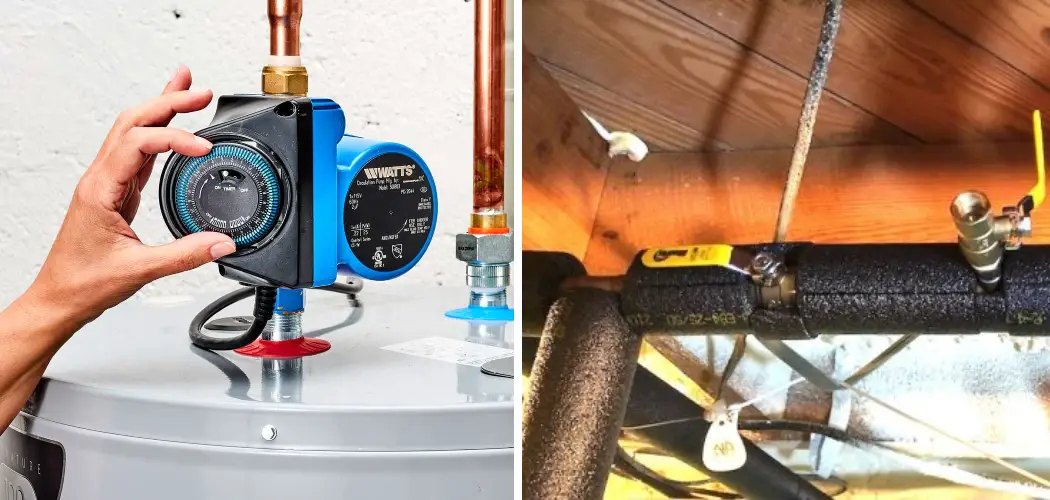Getting hot water faster upstairs is a common problem faced by many homeowners. Whether you are in a hurry to take a shower or need hot water for cooking, waiting for the water to get warm can be frustrating and time-consuming. Fortunately, there are several solutions that can help you get hot water faster upstairs. This guide will discuss some easy and effective ways to speed up the process and save you time and energy.
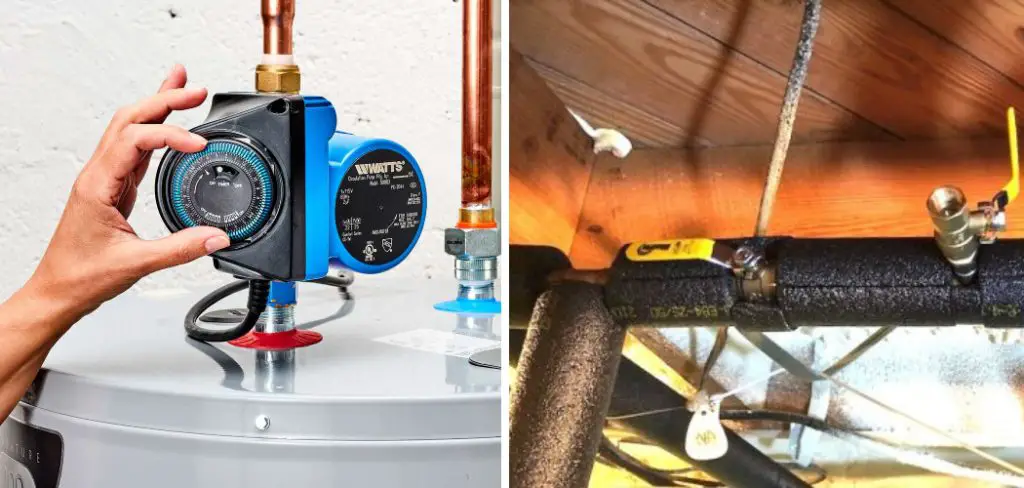
The main advantage of getting hot water faster upstairs is that it can save you time and energy. By implementing the tips and tricks discussed in this guide, you can save time waiting for hot water to reach your shower or sink on the upper level of your home. This blog article provides step-by-step instructions on how to get hot water faster upstairs.
Step-by-step Instructions for How to Get Hot Water Faster Upstairs
Step 1: Inspect the Water Heater
Inspecting your water heater is the first and most important step to getting hot water faster upstairs. Make sure that everything is functioning correctly, including the heating elements, thermostat, and electrical connections.
Step 2: Check for Leaks
If you notice any leaks around your water heater or pipes, it’s essential to fix them before proceeding to the next steps. Leaks can decrease water pressure, resulting in slower hot water flow. The thermostat on your water heater controls the temperature of the water stored inside. Setting it to a higher temperature ensures that more hot water is available when needed.
Step 3: Insulate Your Pipes
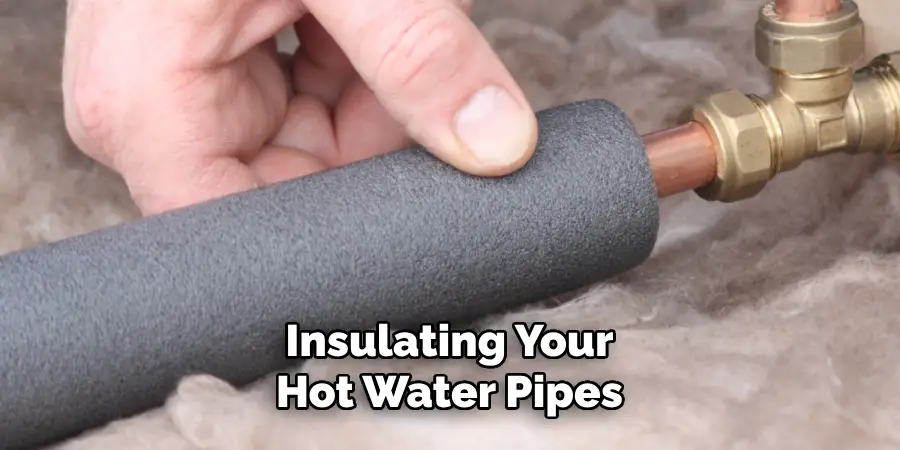
Insulating your hot water pipes can help reduce heat loss and keep the water hotter for longer, making it easier to get hot water upstairs. You can use foam pipe insulation or insulated tape for this step.
When trying to get hot water faster upstairs, make sure to turn off other appliances that use hot water in your home. This includes dishwashers, washing machines, and even showers on the lower floors.
Step 4: Run Hot Water in Other Faucets
Before using hot water upstairs, try running it in other faucets for a few minutes. This will help clear out any air pockets or cool water that may be trapped in the pipes and allow hot water to flow more quickly.
A hot water recirculating pump is an excellent solution for getting hot water faster upstairs. It continuously circulates hot water through the pipes, always making it readily available.
Step 5: Consider Upgrading to a Tankless Water Heater
Tankless water heaters heat water on demand, providing an endless supply of hot water without the need for a storage tank. Upgrading to a tankless water heater can significantly improve hot water flow upstairs.
Mineral buildup in your water heater can affect its efficiency and cause slow hot water flow. Consider flushing the system or hiring a professional plumber to remove any buildup.
Step 6: Be Patient
If you’ve followed all the previous steps and are still experiencing slow hot water flow upstairs, it may just be a matter of patience. Hot water can take a few minutes to travel through the pipes to the upper floors, so give it some time before giving up.
By following these step-by-step instructions, you can ensure that you get hot water faster upstairs and enjoy a more convenient and comfortable daily routine. Remember to regularly inspect your water heater and take necessary maintenance steps to keep it functioning at its best.
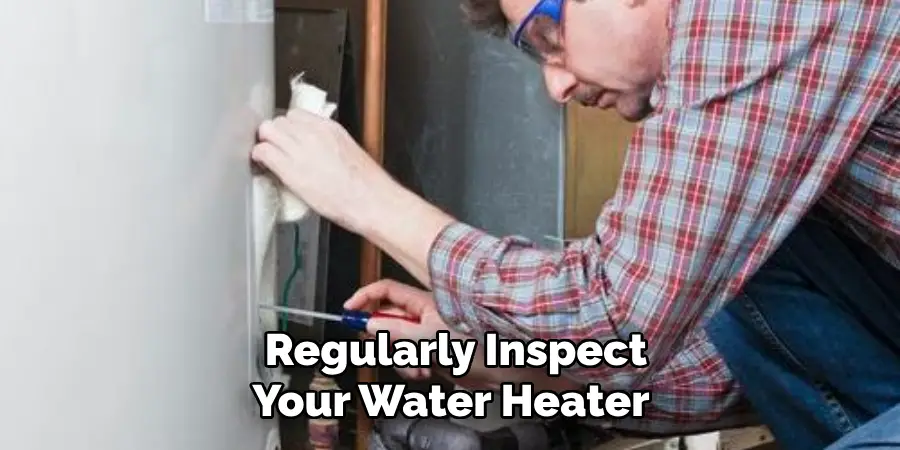
Safety Tips for How to Get Hot Water Faster Upstairs
- Install a Recirculation Pump: This is the most efficient way to get hot water faster upstairs. This system continuously circulates hot water through your pipes, ensuring that hot water is always available when you turn on the tap. It can reduce the waiting time for hot water by up to 80%.
- Insulate your pipes: By insulating your pipes, you can prevent heat loss and keep hot water from cooling down as it travels through the pipes. This will help in getting hot water faster upstairs.
- Use a Smaller Tank: If you have a large water heater tank, consider replacing it with a smaller one. This will reduce the amount of cold water mixed with the hot water as it travels through the pipes, resulting in faster hot water upstairs.
- Install a point-of-use water heater: If you only need hot water for one or two fixtures upstairs, consider installing a point-of-use water heater. This compact unit can be installed near the fixture and provide instant hot water without having to wait for it to travel from the main water heater.
- Check for Any Leaks: Even a small leak in your pipes can cause hot water to escape, resulting in longer wait times for hot water upstairs. Regularly check for and fix any leaks to ensure maximum efficiency.
- Adjust the Temperature on Your Water Heater: You can increase its output and get hot water faster upstairs by adjusting the temperature on your water heater. However, be sure to set the temperature at a reasonable level as it can increase the risk of scalding and lead to higher energy bills.
- Consider a Tankless Water Heater:Tankless water heaters heat water on demand, eliminating the need for a storage tank. This can provide hot water faster upstairs without having to wait for it to travel through pipes or run out from a tank. Additionally, they are more energy-efficient and can save you money in the long run.
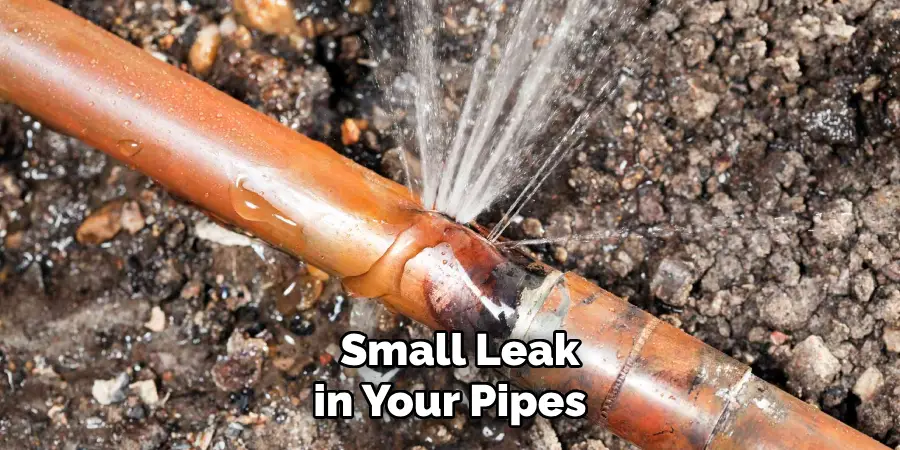
In addition to these safety tips, it is important to regularly maintain your water heater to ensure maximum efficiency. This includes flushing out sediment buildup, checking for any malfunctioning parts, and replacing them if necessary.
Factors That Can Affect Hot Water Delivery Speed Upstairs
- Distance From Water Heater: The farther you are from your water heater, the longer it will take for hot water to reach upstairs. This is because the water needs to travel through pipes and cool down slightly along the way.
- Pipe Diameter: The diameter of your pipes can also affect hot water delivery speed. Smaller diameter pipes have less space for water to flow through, which can slow down the delivery time.
- Insulation: Properly insulated pipes can help retain heat and prevent hot water from cooling down as it travels to your upstairs fixtures. This can significantly improve hot water delivery speed.
- Water Heater Size: The size of your water heater plays a crucial role in how fast hot water is delivered to your upstairs fixtures. If your water heater is too small, it may need to be bigger to keep up with demand, resulting in slower hot water delivery.
- Water Temperature: The initial temperature of the water coming out of your water heater can also affect delivery speed. The colder the water, the longer it will take for it to heat up and reach upstairs.
- Number of Fixtures in Use: The more fixtures that use hot water simultaneously, the slower the delivery speed will be for each individual fixture. This is because the water heater needs to work harder to keep up with demand.
- Type of Water Heater: Different types of water heaters may have varying levels of efficiency and performance when it comes to hot water delivery. For example, a tankless water heater may provide faster delivery than a traditional one.
Other factors that can also affect hot water delivery speed upstairs include the condition of your pipes, the age and maintenance of your water heater, and any potential obstructions in the plumbing system. It’s important to regularly inspect and maintain your plumbing system to ensure efficient hot water delivery throughout your home.
Common Reasons for Slow Hot Water Upstairs
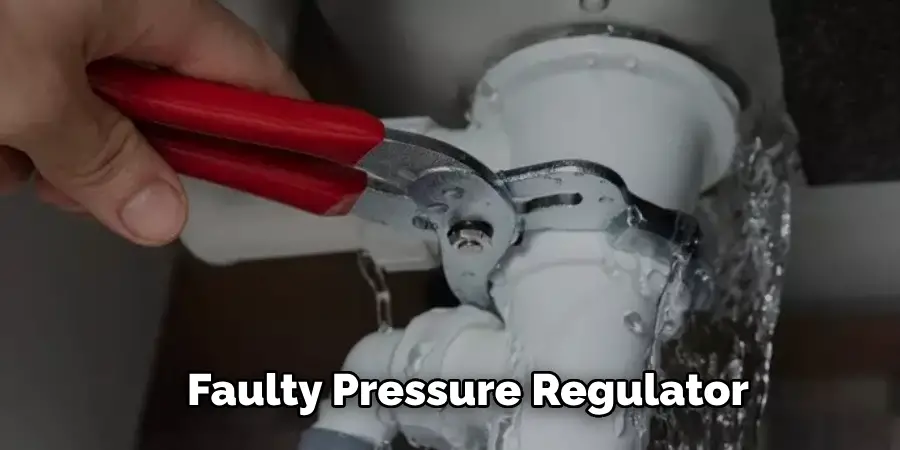
- Sediment Buildup in Water Heater: Over time, sediment can accumulate in your water heater, reducing its heating capacity and slowing down hot water delivery.
- Water Pressure Issues: Low water pressure can result in sluggish hot water flow upstairs. This could be due to a faulty pressure regulator or clogged pipes.
- Plumbing Leaks: Leaks in your plumbing system can also affect hot water delivery speed. These leaks could be anywhere in the system, from the water heater to the upstairs fixtures.
- Old or Damaged Pipes: As pipes age, they can become corrupted or damaged, hindering the flow of hot water and causing slower delivery times.
- Malfunctioning Mixing Valve: A malfunctioning mixing valve can cause issues with water temperature regulation, resulting in slower hot water delivery.
- Water Heater Thermostat Setting: If your water heater thermostat is set too low, it may take longer for the water to heat up and reach upstairs.
- Inadequate Insulation: Poorly insulated pipes can allow hot water to cool down as it travels, leading to slower delivery times upstairs.
Addressing these common issues can help improve hot water delivery speed upstairs. Regular maintenance of your plumbing system and thorough inspections can help identify and resolve any potential problems that may be affecting the efficiency of your hot water delivery.
Maintenance and Monitoring After Getting Hot Water Faster Upstairs
After implementing the necessary steps to get hot water faster upstairs, it is important to continue with regular maintenance and monitoring to ensure that the system continues to function efficiently. Here are some tips for maintaining and monitoring your hot water system:
- Inspect and Clean the Pipes Regularly:Over time, debris and sediment can accumulate in the pipes, causing blockages that can slow down your hot water system. By inspecting and cleaning the pipes on a regular basis, you can prevent these blockages from occurring.
- Check the Water Pressure: Low water pressure can also affect the speed at which hot water reaches upstairs. Make sure to regularly check the water pressure; if it is low, adjust it accordingly.
- Monitor Energy Usage: Getting hot water faster upstairs may increase your energy consumption. Keep an eye on your energy bills and make sure they are not significantly higher than before.
- Test the Temperature Setting: If you start to notice a decrease in hot water flow or temperature, check the temperature setting on your hot water system. It may need to be adjusted if it is too low.
- Schedule Professional Maintenance: It is recommended that you schedule a professional maintenance check at least once a year. This will help identify potential issues and ensure that your hot water system is running efficiently.
- Keep an Eye Out for Leaks: Leaks in the hot water system can cause significant damage and affect the speed of hot water upstairs. Regularly inspect the system for any leaks and fix them immediately.
- Consider Upgrading to a More Efficient System: If you find that even after implementing the steps, getting hot water faster upstairs is still a challenge, it may be time to consider upgrading to a more efficient hot water system. This could save you time and money in the long run.
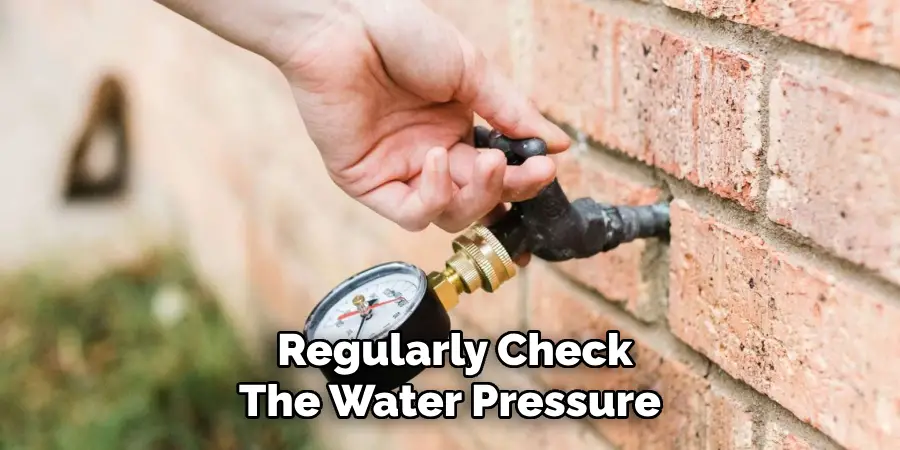
By following these maintenance and monitoring tips, you can ensure that your hot water system continues operating efficiently and effectively, providing you with hot water whenever needed. Remember to also regularly check for any updates or advancements in hot water technology that could further improve your system’s performance.
Additional Tips for Improving Hot Water Efficiency
- Install a Water Softener: Hard water can cause mineral buildup in your hot water system, reducing its efficiency. Installing a water softener can help prevent this and keep your system running smoothly.
- Insulate Hot Water Pipes: Insulating the hot water pipes in your home can help reduce heat loss, allowing hot water to reach upstairs faster.
- Use Cold Water for Certain Tasks: Some tasks, like washing clothes, do not require hot water. Consider using cold water for these tasks to reduce the strain on your hot water system.
- Fix Any Leaks in Faucets or Fixtures: A dripping faucet or leaking fixture can waste a lot of hot water, resulting in slower hot water flow upstairs. Make sure to fix any leaks promptly.
- Drain and Flush the Hot Water Tank: Sediment buildup in the hot water tank can also affect its efficiency. Drain and flush the tank at least once a year to prevent this.
- Inspect the Temperature and Pressure Relief Valve: The temperature and pressure relief valve is an important safety feature of your hot water system. Make sure to check it regularly and replace it if necessary.
- Consider a Recirculation System: A recirculation system can continuously circulate hot water, reducing the amount of time it takes for hot water to reach upstairs. This could be a good option for larger homes or households with high hot water demand.
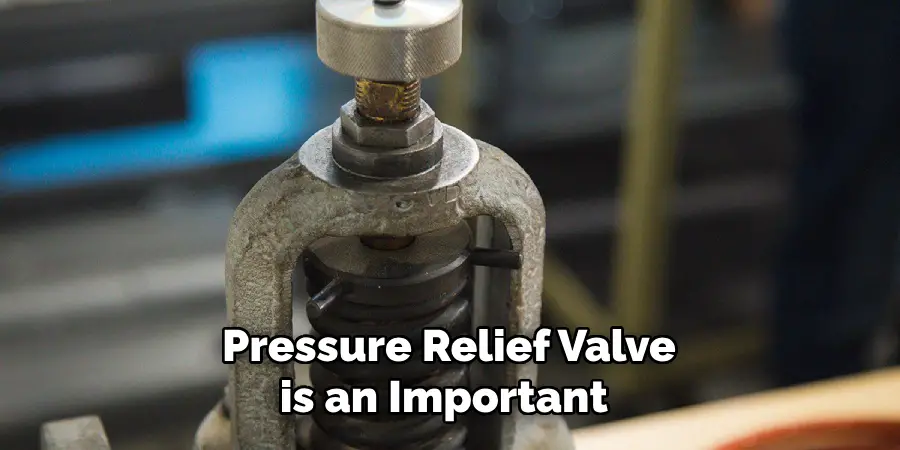
By implementing these additional tips, you can further improve your hot water system’s efficiency and performance, ensuring that you always have hot water when you need it. Remember to also educate yourself on hot water usage habits and ways to conserve water, as this can also help reduce strain on your system.
Importance of Professional Assistance for Getting Hot Water Faster Upstairs
As discussed earlier, professional assistance can be extremely beneficial when it comes to getting hot water faster upstairs. Here are seven reasons why:
- Expertise: Professional plumbers have the necessary expertise and knowledge to identify and resolve any issues related to your water heater. They understand how different types of heaters work and can quickly diagnose the problem.
- Quality Service: Hiring a professional ensures that the job is done right. They have the necessary tools and equipment to carry out repairs or installations efficiently, ensuring high-quality work.
- Time-Saving: Trying to fix a water heater issue on your own can be time-consuming and frustrating. Professional plumbers have years of experience and can quickly identify and resolve the problem, saving you time and hassle.
- Safety: Handling water heaters can be dangerous, especially if you’re unfamiliar with them. Professionals are trained to handle all types of heaters safely and efficiently.
- Cost-Effective: While fixing your own water heater may seem like a cost-saving measure, it can actually end up being more expensive in the long run. A professional plumber can identify and fix any underlying issues, preventing costly repairs in the future.
- Access to Resources: Professional plumbing companies have access to a wide range of resources that can help solve any water heater issue. They also have relationships with suppliers, which means they can get replacement parts at a lower cost.
- Peace of Mind: Lastly, hiring a professional plumber gives you peace of mind, knowing that your water heater is in good hands. You can trust that the job will be done right, and you won’t have to worry about any accidents or malfunctions.

In conclusion, professional assistance is essential when it comes to getting hot water faster upstairs. It saves time and money and ensures safety and high-quality service. Don’t hesitate to call a professional plumber the next time you face any water heater issues. You won’t regret it.
Conclusion
In conclusion, having hot water upstairs has always been challenging. By implementing the above tips and tricks, you can save time and energy while getting hot water faster. Whether it’s by insulating your pipes, adjusting your boiler settings, or installing a recirculation pump, there are various options available to suit different needs and budgets.
Moreover, investing in energy-efficient appliances can also help reduce wait time for hot water upstairs while also saving on utility bills. These upgrades may include a tankless water heater or a hybrid heat pump system.
It’s also worth mentioning that simple habits like turning off the tap while brushing your teeth or taking shorter showers can also contribute to conserving hot water and, ultimately, getting it faster upstairs. Reading this post has helped you learn how to get hot water faster upstairs. Make sure the safety precautions are carried out in the order listed.

